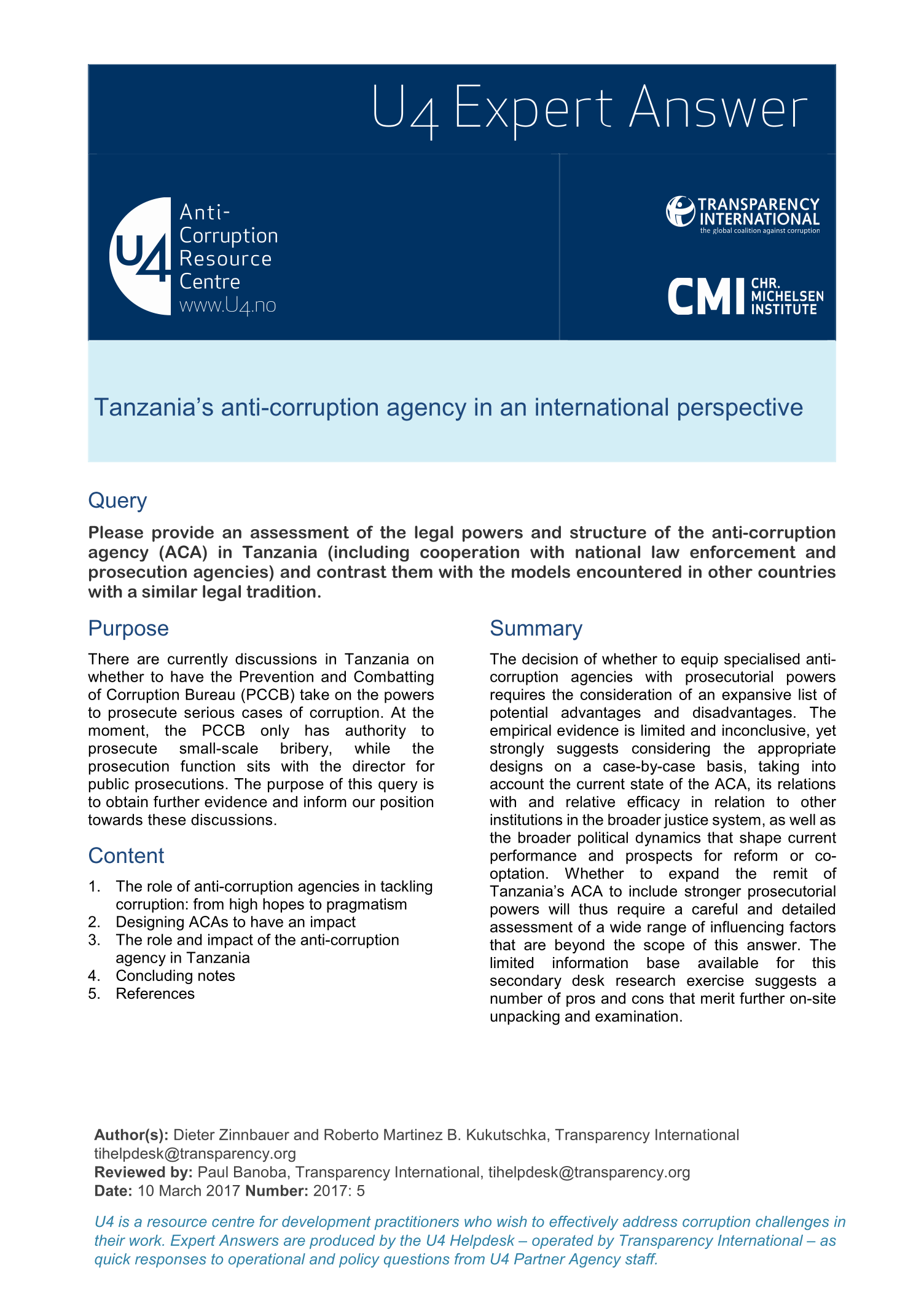U4 Helpdesk Answer
Tanzania’s anti-corruption agency in an international perspective
The decision of whether to equip specialised anti-corruption agencies with prosecutorial powers requires the consideration of an expansive list of potential advantages and disadvantages. The empirical evidence is limited and inconclusive, yet strongly suggests considering the appropriate designs on a case-by-case basis, taking into account the current state of the ACA, its relations with and relative efficacy in relation to other institutions in the broader justice system, as well as the broader political dynamics that shape current performance and prospects for reform or co-optation. Whether to expand the remit of Tanzania’s ACA to include stronger prosecutorial powers will thus require a careful and detailed assessment of a wide range of influencing factors that are beyond the scope of this answer. The limited information base available for this secondary desk research exercise suggests a number of pros and cons that merit further on-site unpacking and examination.

Cite this publication
Kukutschka, R.; Zinnbauer, D. 2017. Tanzania’s anti-corruption agency in an international perspective . Bergen: U4 Anti-Corruption Resource Centre, Chr. Michelsen Institute (U4 Helpdesk Answer 2017:5)
Disclaimer
All views in this text are the author(s)’, and may differ from the U4 partner agencies’ policies.
This work is licenced under a Creative Commons Attribution-NonCommercial-NoDerivatives 4.0 International licence (CC BY-NC-ND 4.0)
